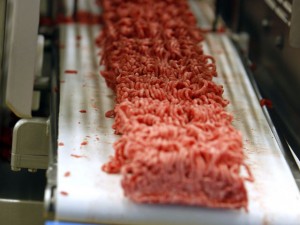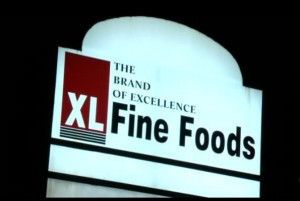With the Public Health Agency of Canada late to the public scene as usual, Sarah Schmit of Post Media reports the Canadian Food Inspection Agency conceded Monday it was a mistake not to require companies to analyze test results of beef trim to “connect the dots to get the big picture.”
Richard Arsenault, the agency’s director of meat inspection, confirmed changes are coming so companies will need to do more than test for E. coli and start analyzing data  as part of a statistical process control.
as part of a statistical process control.
The testing requirements were “fairly rigorous” but “in terms of connecting the dots to look for these pictures” they didn’t have to do that, Arsenault said in an interview Monday. “We didn’t think that was something that would have been useful. We now know that it is, so that’s why we’re going to change it.”
Hundreds of beef products have been recalled since Sept. 16, and the CFIA has indicated the recall is likely to expand. CFIA has since temporarily suspended the operating licence of XL Foods Inc.’s facility in Brooks, Alta. The plant, the second largest slaughterhouse in Canada, is also no longer allowed to ship product to the United States.
Under the N-60 sampling program, companies are required to test at least 60 pieces of beef trimmings stripped from the carcasses that go into hamburger meat, regardless of the size and weight of the lot.
“If they don’t put the dots together to get the big picture for the day, they may be missing something. And that’s where we have an improvement and we’re going to make something happen,” added Arsenault.
Bob Kingston, the Public Service Alliance of Canada Agriculture Union president, said CFIA’s new commitment seems “to fly in the face of what the CFIA promised to Canadians after the Maple Leaf outbreak that companies are required to test, analyze and report results showing contamination. It would appear that the CFIA forgot this requirement. This is troubling to say the least,” said Kingston, referring to the deadly listeriosis outbreak of August 2008.
NDP leader Tom Mulcair picked up on this theme during question period Monday, when he chastised Agriculture Minister Gerry Ritz.
“This is the same minister who mishandled the listeriosis outbreak in 2008, and joked about ‘death by a thousand …. cold cuts.’ It was not funny then, and it is not funny now. Is this the best they have to offer Canadians who are worried whether the food they are giving their kids is safe?”
Speaking on behalf of the government, Defence Minister Peter MacKay said Ritz “is working very hard and is working sincerely to ensure that this issue is dealt with  appropriately, including ensuring we have more food inspectors and more meat inspectors. It goes further than that, we have new legislation that has been introduced, safe food for Canadians, to help CFIA respond to food safety situations quickly,” MacKay said in the House of Commons.
appropriately, including ensuring we have more food inspectors and more meat inspectors. It goes further than that, we have new legislation that has been introduced, safe food for Canadians, to help CFIA respond to food safety situations quickly,” MacKay said in the House of Commons.
In the case of the XL Foods facility in Alberta, 40 CFIA inspectors and six veterinarians are stationed at the plant full-time, split in two groups to cover two production shifts at the massive facility. The plant produces about one-third of Canadian beef.
It’s quintessentially Canadian to complain about the government and frame food safety things using political filters, but why hasn’t the company, XL Foods, which has received hundreds of millions of tax dollars over the years, not been out on the public communication frontlines?
